INSPIRING YOUNG SCIENTISTS – THE EWT CONSERVATION SCIENCE UNIT IN ACTION
Dr Lizanne Roxburgh, Senior Scientist, Conservation Science Unit
[email protected]
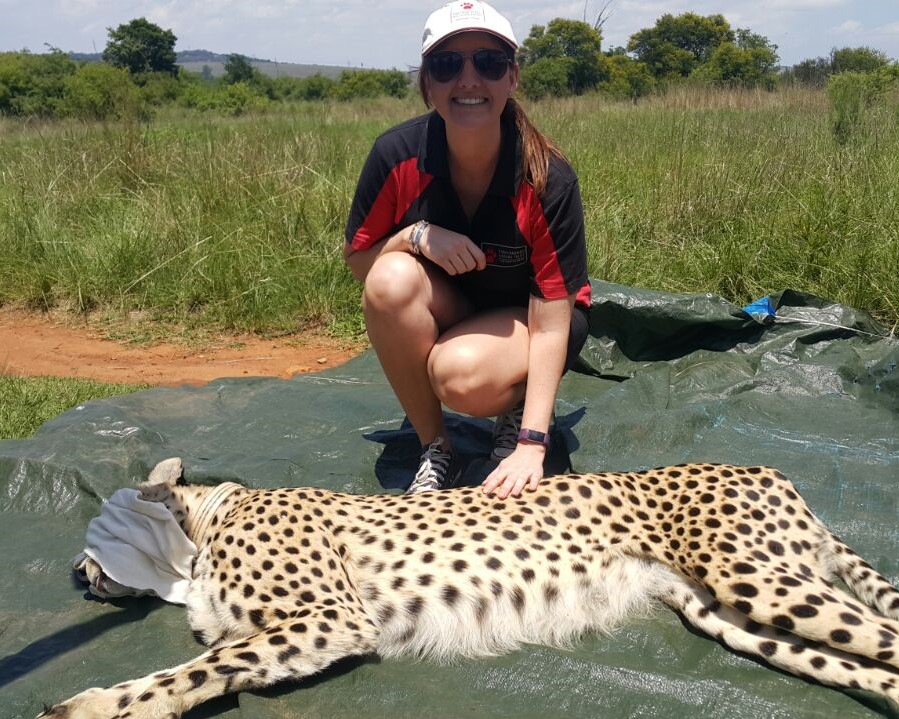
Young South Africans are the conservation champions of tomorrow. They will become the next generation of soldiers and explorers in the frontlines, fighting to conserve our biodiversity and promoting a more sustainable tomorrow. Critical to effective conservation practice is robust science, and ensuring that the scientific methods we use in all of our projects are rigorous and defendable, is the role of the EWT’s Conservation Science Unit. In celebration of Youth Day, and to provide inspiration to other aspiring conservation scientists, we would like to showcase the young scientists in our unit, and the exciting career paths they have ahead of them. However, we recognise that our team of hard-working young scientists were privileged to attend universities and had opportunities to enjoy South Africa’s wildlife and natural environments while growing up, which are opportunities that are not yet given to all South African youth.
Claire Relton – Conservation Science Officer
My journey to conservation began at a young age, inspired by cross-country family road trips to South Africa’s diverse and spectacular protected areas. A passion and wonder for the natural world were instilled in me during Drakensberg hikes beneath Cathedral Peak, and hippo-watching through small red plastic binoculars with my feet dangling off the edge of a wooden bird hide. During a family camping trip, I remember sleeping with my head outside of the little triangular tent, just to hear the captivating sounds of the night more clearly. After waking up with my eye swollen shut, looking as if I had crept straight out of a horror movie, I only wondered with fascination, which crawling creature had bitten me in the night. My graduate and postgraduate education in biology and environmental science took me to the Universities of Cape Town, Pretoria, and Wits. I began working for the EWT as a nervous, yet enthusiastic volunteer, and now, as a conservation scientist, I aim to assist teams to develop, monitor, and implement impactful and effective conservation projects. Although I committed to hard work and dedication throughout my education and career in the conservation field, I also deeply understand that much of my story is one of privilege, access, and opportunity. If we hope to combat the enormous and increasing threats to biodiversity that the conservation community faces in this country, it is critical that all young South Africans are provided with the opportunity to access, appreciate, and understand South Africa’s splendour of wildlife and natural spaces.
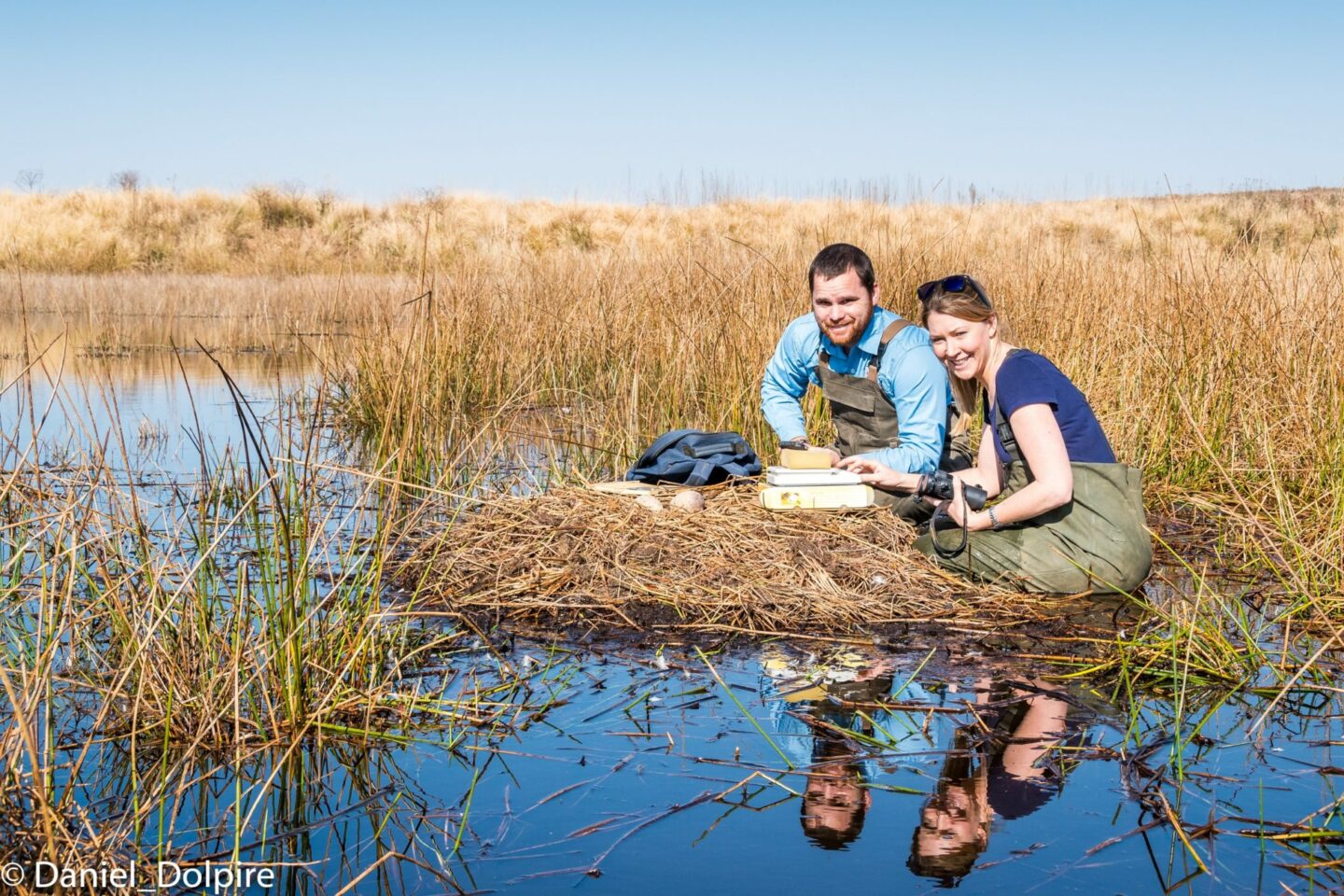
Dominic Henry – Ecological Modelling Specialist
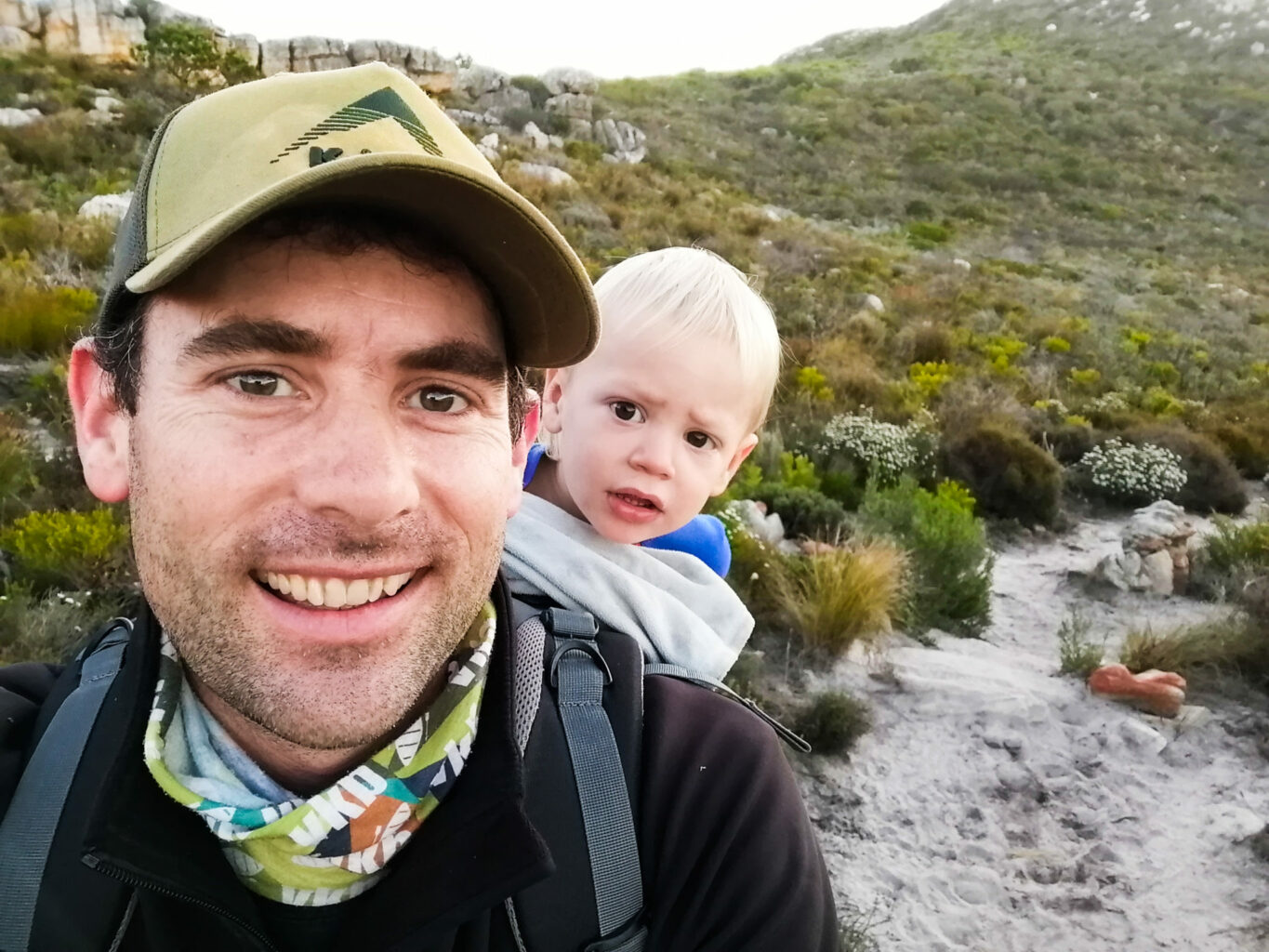
In a misguided attempt to pursue a respectable career in the financial sector, I started a Business Science degree at the University of Cape Town (UCT) in 2003. After a year and half of learning about rands and cents, following this trajectory no longer made sense (to me at least). I thought about places and times in my life where I found joy and contentment, and quickly realised that growing up on a farm had primed me for being happiest outdoors. I met with a prominent entomologist and Science Faculty student advisor who encouraged me to immediately move faculties and start a degree in Ecology. Little did I know that this meeting would lead me towards a fascinating and fulfilling career as an ecologist. During my studies, I developed a strong passion for birds and birding, and after my Honours degree, I took a year off to work as a field guide in a game reserve. I was lured back to the UCT by an offer to start a Master’s degree (which I later upgraded to a PhD) working on the movement ecology of southern African waterbirds, conducting fieldwork at 60 sites within the protected areas of Zululand). As an avid birder, this was an opportunity I couldn’t pass up. I developed an affinity for working with large datasets that led me to take a deep dive into learning quantitative ecology techniques. I then took up a postdoctoral fellowship at the Centre for Statistics in Ecology, Environment and Conservation (SEEC), in which I used statistical models to quantify patterns of species richness of birds, reptiles, mammals, scorpions, butterflies, grasshoppers, and plants in a part of the Karoo that is threatened by shale-gas exploration. This gave me a deep appreciation for biodiversity in very sensitive ecosystems. After 13 years at UCT I decided to leave academia and take up a position at the EWT as an Ecological Modelling Specialist. While I am still involved in research, my primary work now involves developing models that quantify the distribution of threatened species of reptiles, amphibians, mammals, and butterflies. These models are used to inform land-use decision making and aid responsible infrastructure development. I derive a deep sense of satisfaction knowing that I can use the skills I have learned during my scientific training to address real world conservation issues.
Samantha Nicholson – Lion Database Coordinator
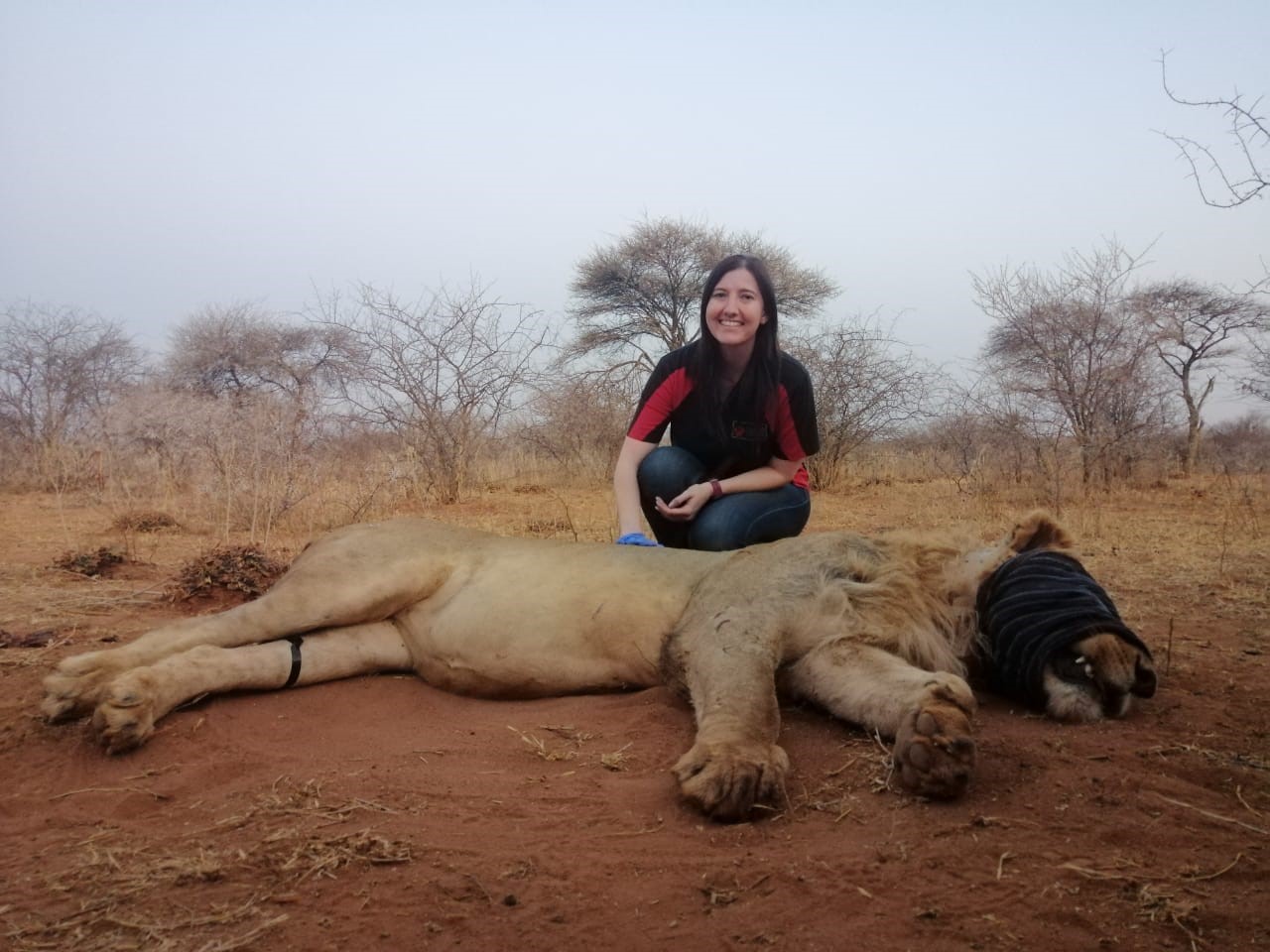
Ever since I can remember I knew I wanted to work with wild animals. For most of my primary school days I dreamt of becoming a game ranger and spending every day in the bush and being with wildlife. I then started to learn about how many species were threatened with extinction and I knew I wanted to do something to help conserve them, specifically large carnivores. In high school I came across the term ‘Zoologist’ and thought “well ok, that’s what I will be”, and off to university I went. In 2014 I graduated with my Master of Science degree with distinction in Zoology. I then began working at the Endangered Wildlife Trust as a Conservation Science Intern, and in 2018 I was appointed as the project coordinator for the global African Lion Database (ALD) initiative. This unique project aims to develop a platform to consolidate lion population and distribution data from across the African continent. This will allow us to better understand the distribution, conservation status, and population trends of this iconic African cat. I consider myself incredibly lucky to be able to have a career that contributes to species conservation.
Oliver Cowan – Conservation Science Officer
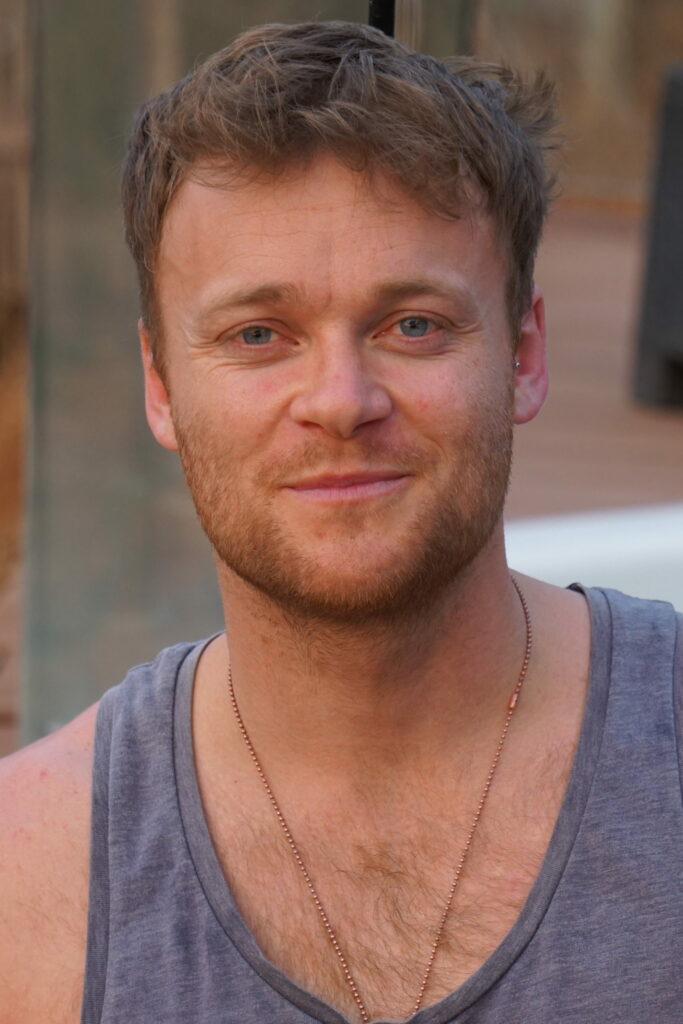
I have always been fascinated by how things work and why things are the way that they are. As a child I would want to know, for example, why flowers were different shapes and sizes. I was drawn to science as a way of understanding nature better. As my scientific curiosity increased through adolescence, so too did my comprehension that not only could science help me understand the world, but it could also be used to help correct the damage we humans have inflicted on the environment. This led me to the decision to study ecology and environmental science after I finished school. I have never regretted this decision and, after a long adventure in academia, I was fortunate to be offered a job with EWT’s Conservation Science Unit upon completing my PhD. Currently, I am working on a nation-wide project to increase the protection of species and habitats of conservation concern. I feel so fortunate to be able to combine the skills I learned in my academic career with my lifelong passion for nature, to assist in applied conservation practices that protect and safeguard our wondrous biodiversity.
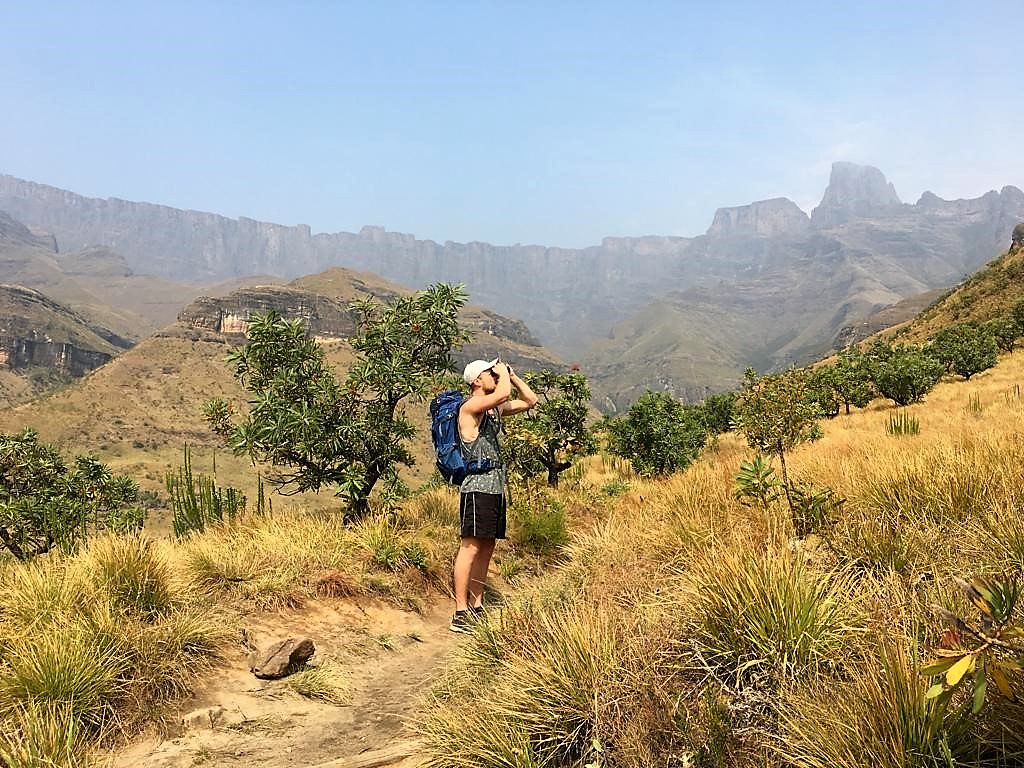
Tamsyn Galloway – Conservation Science Intern

If ever given the choice of holiday destination, it always has and always will be the African bush. There is nothing better for me than spending time in nature – watching, listening, and learning from the great teacher herself, Mother Nature. Therefore, when considering career options, I felt I had to work with wildlife, and science was an obvious choice. However, having an innately logical mind and a knack for Geographical Information Systems (GIS), I looked for a niche where wildlife conservation and GIS could meet. At the Endangered Wildlife Trust, I have been able to do just that, creating maps that show species distributions and their habitats. I also assist in the writing of research papers that aim to identify and test the effectiveness of potential mitigation measures to address the threats that power lines present to our iconic African bird species. I am eager to see where this career path takes me and look forward to growing into the role of a true wildlife conservationist of Africa. For more information about the CSU, please contact us here.
